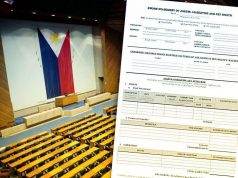Colombia court suspends Petro’s labor reform referendum decree

BOGOTA — A Colombian high court suspended a decree by President Gustavo Petro that sought to call a referendum on his proposed labor reform, the latest setback for Mr. Petro’s effort to broadly expand worker benefits.
Mr. Petro decreed the 12-question referendum last week in a bid to force the Senate to vote on his reform before the end of its session on June 20 and in defiance of the opposition, who say the vote would disregard institutional norms and threaten Colombia’s separation of powers.
The Council of State, a high court that settles disputes between private parties and state entities, said in its decision that the referendum decree lacked approval it requires in the Senate.
On Tuesday, the Senate approved a modified and much-debated labor reform bill, and Mr. Petro has said he could withdraw his call for a referendum if that labor reform, as approved, passes a reconciliation process between the Senate and the House of Representatives and ultimately benefits workers.
Tuesday’s bill aims to improve workers’ conditions and includes measures to enshrine an eight-hour daytime workday. The approved reform will immediately increase wages for work conducted from 7 p.m. onward and gradually increase the surcharge for Sunday and holiday work through July 2027.
Mr. Petro, who took office in August 2022 as Colombia’s first leftist president, pledged to push through economic and social reforms to reduce poverty and inequality in the country of 50 million.
However, most of his social proposals have either been rejected or have faced significant obstacles in Congress, where he lacks sufficient support and a politically polarized environment less than a year before legislative and presidential elections to choose his successor. — Reuters



